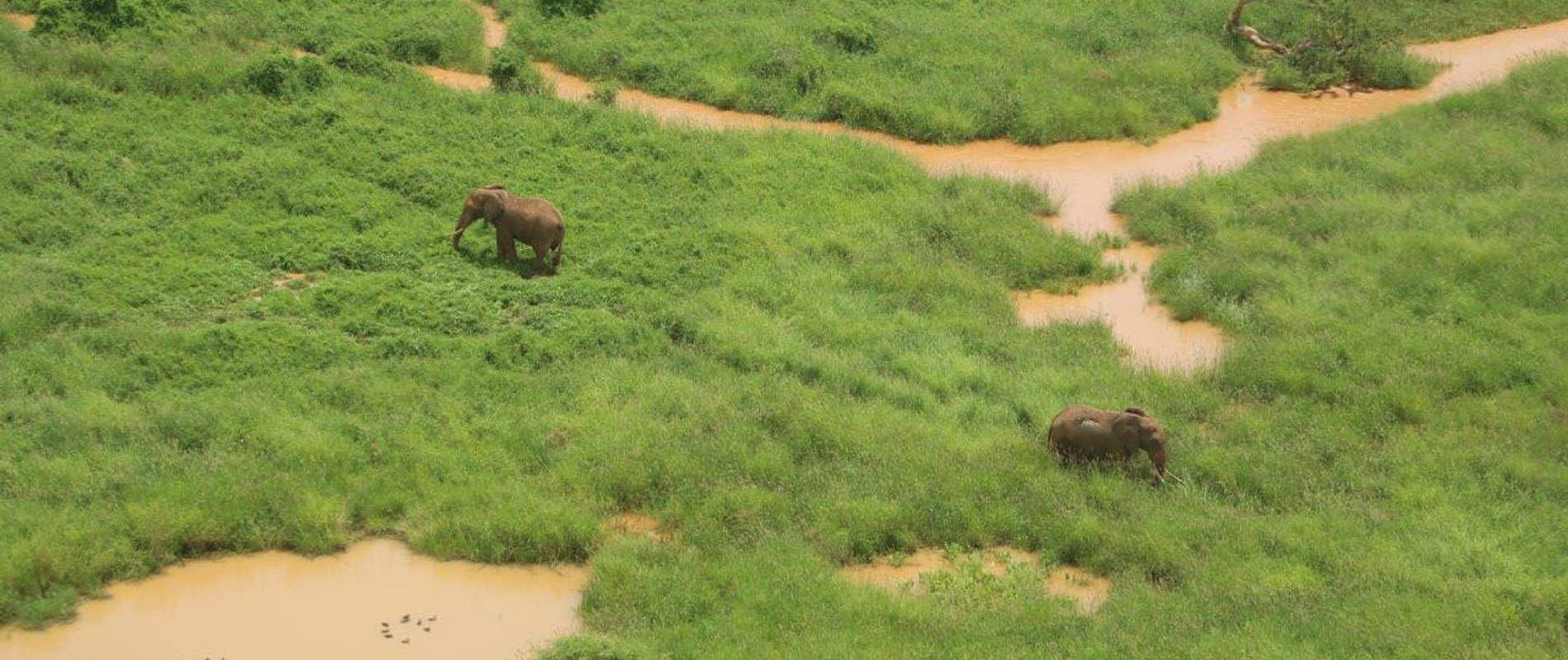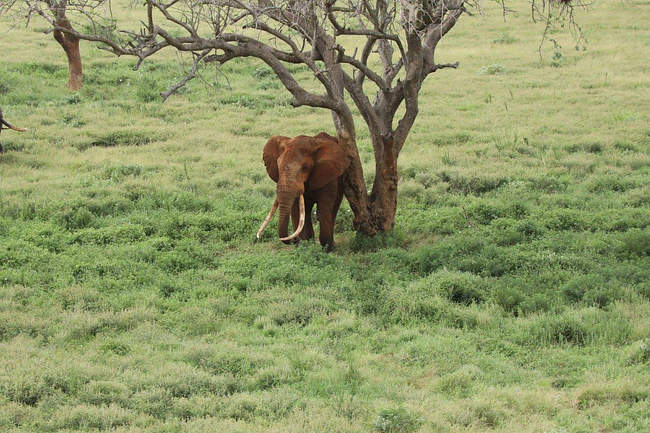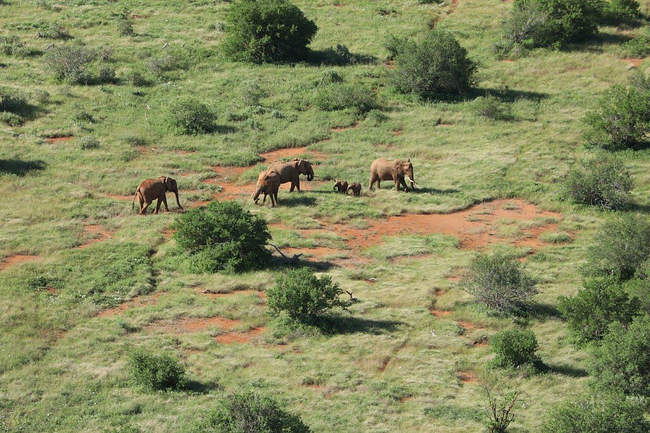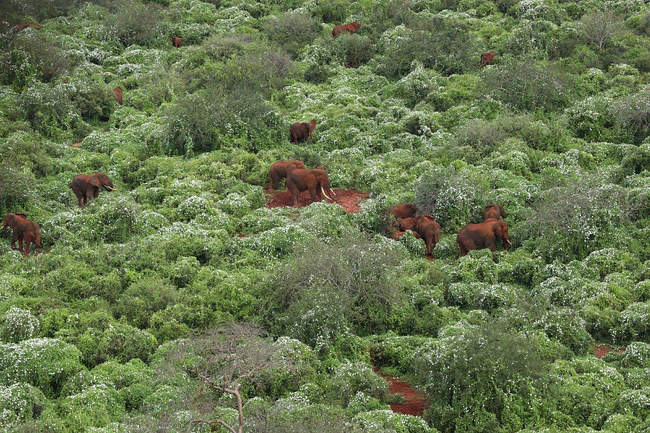The unusually long November-December rainy season ended up blending into the March-April rains, so most of the Park remained green through March, with some areas experiencing huge amounts of rainfall in January and a February.
With the continuation of rain, poaching has also remained relatively absent from Tsavo East and West National Parks. There were, however, a few illegal activities to report.
Two elephant carcasses were discovered during the course of the month, however, both appear to have died of natural causes. One was a known, older, bull elephant that had been monitored for several days prior to passing away. It was obvious that he was unwell, but he did not have an external injury that could have been treated. The other carcass was severely decomposed and so a definitive cause of death could not be determined, though the ivory was found intact and it is therefore assumed not to have been poaching related.

Helicopter patrols similarly did not yield any active poaching activity, but multiple charcoal camps were found and destroyed on a group ranch bordering Tsavo West NP, whilst there is a high probability that charcoal burners were also engaging in bushmeat poaching. A total of 5 camps were discovered, along with 54 charcoal kilns and 10 charcoal sacks.
Three human-wildlife conflict cases were attended to by the helicopter around KARI Ranch and the Kibwezi Forest. A total of 4 elephant bulls were successfully moved out of farmlands and back into protected areas.
There was an influx of cattle in Tsavo West, attracted by thick green grass, and these were the focus of several fixed-wing aerial patrols. Several trips were also made to South Kitui National Reserve, which is in the process of being reclaimed by KWS, including one trip on the ground by an SWT pilot to site the location of an airfield for improved access in the future.
Otherwise, all is generally calm in the Parks at the moment, with most of the area still being relatively green (some places very and other places starting to dry off). For the time being, we will enjoy the lull in illegal activity, but the expectation is that as the economic impact of Covid-19 begins to be felt across Kenya, there will be increased pressure on the Parks. Fortunately, our work is continuing, and we have taken significant steps to protect ourselves from infection and prepare for the coming months.
Highlights for the month included separate sightings of what appeared to be a pair of elephant twins and a pair of giraffe twins.



